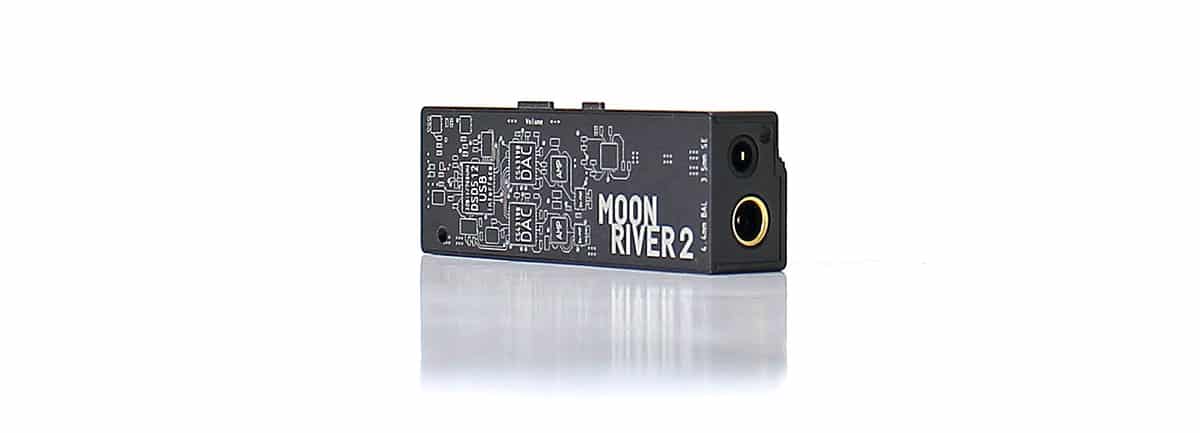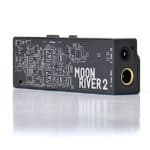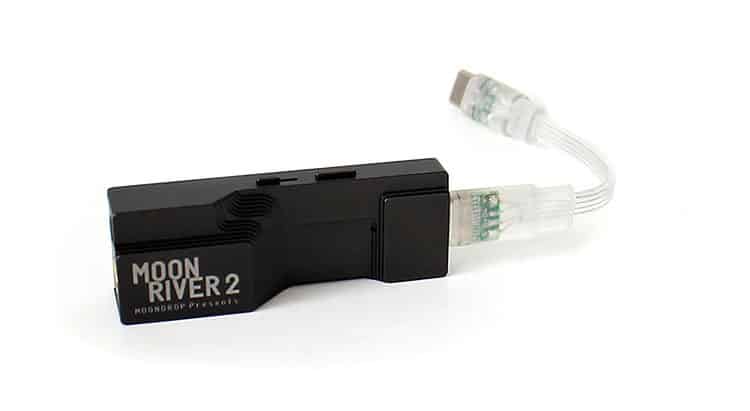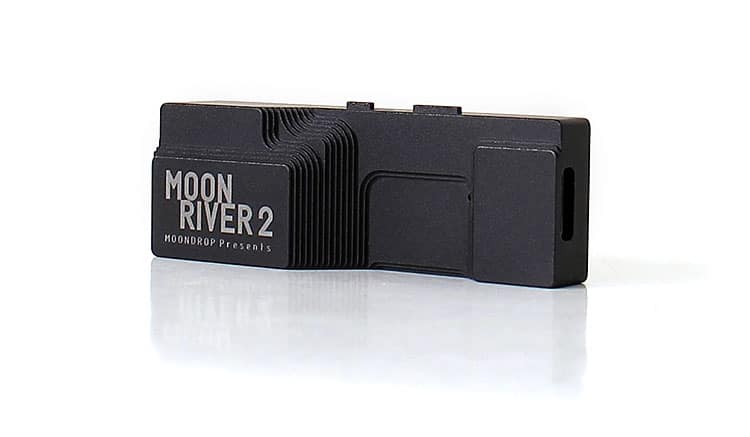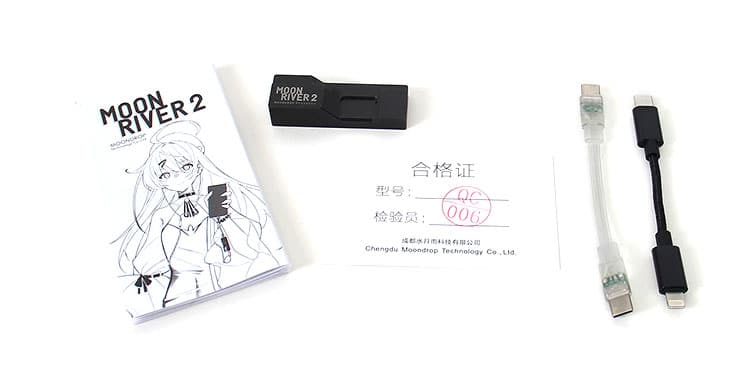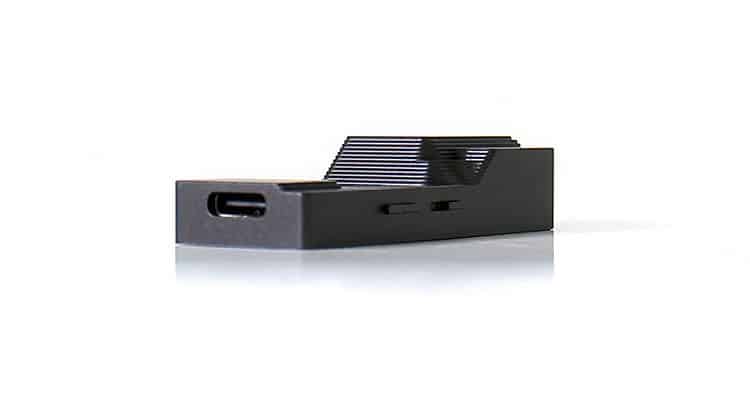In today’s review, we cover the new Moondrop MoonRiver 2 which is a dongle-type balanced portable amplifier with a dual DAC design. It is priced at $189.99
Disclaimer: This sample was sent to us is a sample in exchange for our honest opinion. We thank Moondrop and Shenzhen Audio for this opportunity.
To read more about Moondrop products we have previously covered on Headfonics, click here.
Note, that this 2-page article follows our latest scoring guidelines which you can read here.
Rarely will our readers mention Moondrop and not think IEMs such as the Aria because honestly, they rarely venture out of that product segment with just a few exceptions. They did make for example the LittleBlack Bluetooth cable and a few other accessories but as the phrase says nothing major.
Well, now Moondrop has just dropped into the popular dongle market with their own model which they call the MoonRiver 2. What I can’t find out for sure is if there was a first version of the MoonRiver, so why the number two? I think there was a version one but it never came to public view and stayed in beta status.
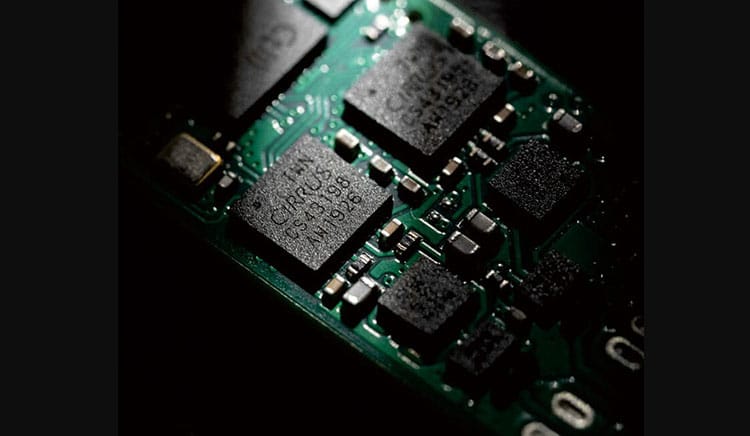
Tech Highlights
The Moondrop MoonRiver 2 has a dual channel design that uses two DAC chips in a dual mono configuration all the way up to and including the output stage. The analog output stage goes further by employing a 4-channel setup.
Two high ticket premium Cirrus Audio CS43198 chips in a dual channel configuration give the Moondrop MoonRiver 2 lots of digital to analog conversion capability that seems to handle most modern compatible digital formats with ease since I did not run into any type of stuttering issues on my sample even when used with high bit rates.
Digital Formats
The Moondrop MoonRiver 2 can handle PCM at up to 32BIT/768 kHz. Native DSD256 decoding is also included and though it is not mentioned anywhere I’m certain the MoonRiver 2 can handle DXD since it’s a similar format to PCM but just at a specific high bit rate which rates are in fact specified to run on this dongle.
So, I basically kicked up the Moondrop MoonRiver 2 up to DSD256 just to see what would happen and this dongle handled itself well while some others in that particular situation would buffer considerably or simply break up. The DAC section seems very stable on this device.
There is no MQA decoding directly but many buyers could take it or leave it the same and will be just fine with the MoonRiver 2 specified digital format capabilities.
Output Power
A four-channel dual op-amp per side powers the analog side which can push 300Ω headphones according to Moondrop.
There is also an onboard volume control that moderates the output plus the volume control double up as the gain control by pressing the two simultaneously which toggles between two stages of gain.
I have no idea why Moondrop didn’t post power output numbers in watts and they post them in volts instead. They also call the outputs line-outs on their spec sheets for some reason as if they want you to use the MoonRiver 2 as a line-level standalone DAC.
Moondrop lists the power output at 4V max at the 4.4mm plug and 2.8V on low gain. The 3.5mm single-end plug does 2V and 1.4V on low gain. Perhaps Moondrop will publish wattage numbers at some point to better compare to other dongles out there.
One note I made was the rather wide frequency response listed at 6 Hz to 85 kHz. That’s a rather wide frequency response for a device of this type. Most dongle DACs just list the average 20 to 20k and call it a day.
The all-important background noise is via the balanced output at 1.5µV. The SE output lists a lower 1.2 V with a better distortion rating. THD-N is rated at 0.0008% at 2Vrms with a 32Ω load and 0.00013% at 4Vrms on a 300Ω load.
Design
The design aspects of the Moondrop MoonRiver 2 dongle are rather tech head oriented but you will either love it or leave it. The design is somewhat odd and it must have been intricate work for the CNC machines that gave shape to these all-aluminum two-part shells which are held together by a single set screw.
It is a rather unique-looking dongle visually but some would have preferred rounded edges which would make it more pocket-carry friendly. The MoonRiver 2 does have a few pointy corners but no sharp edges at least.
It seems Moondrop is very proud of the MoonRiver 2 circuitry and displays it proudly in the form of a diagram and almost schematic-like right on the back of the dongle. I would have used a transparent window on the backside to show off the real circuitry work instead. What do you think?
Just as most dongle DACs of today the MoonRiver 2 has dual jacks, a 3.5mm single-ended plus a 4.4mm balanced headphone output on one end with a USB-C on the other end which acts as the input. The only other visible feature is the dual button volume control besides the format indicator LED.
Packaging & Accessories
I feel the packaging is more than adequate but I have one small peeve and after what I’m about to say some will consider me somewhat fastidious but hear me out.
The box itself is mostly white with dark letters and is a rather cool design. It comes within a clear shield that has the same matching letters and it seems the box designer is trying to create a 3D effect but it just doesn’t work. Why? Because the printing must match perfectly with the box for it to work and it doesn’t by just a fraction.
I don’t read any of the Oriental languages but with the transparent shield on you can barely read the box print. Perhaps it would be best to just use a nonprinted transparent cover and Moondrop should just save some pennies there.
It would make the labeling on their product crisper and easier to read. Take those extra savings and supply the buyer with a USB to lightning cable instead.
On a really positive note, I really like the flat dual-sided USB-C cable that comes with the MoonRiver 2. I had not seen a flat cable in a long time. This one is made with a transparent material that lets you see most of the internal guts.
Sound Impressions
Summary
The MoonRiver 2 has a dark, silent background, a dynamic signature, a full frequency spectrum that seems flat-lined and neutral in frequency response and it seems to produce music in a rather transparent way.
These DAC chips have the clarity of the CS43131 which is a notch below the CS43198 but with an ounce of added warmth and character plus a slightly wider stage.
It seems Moondrop was very concerned with the noise floor and particularly with hiss. They managed to keep it way down with the MoonRiver 2 because I never heard any although I was trying to provoke it to surface it never did, especially on low gain and on high gain just the same.
The MoonRiver 2 seems to take a step forward in imaging capabilities plus added placement accuracy from let’s say the first iteration dongle DACs that were introduced into the market which generally sounded somewhat narrow and lacked depth.
This dongle has good depth production and in the staging category, it fares well and better than most.

